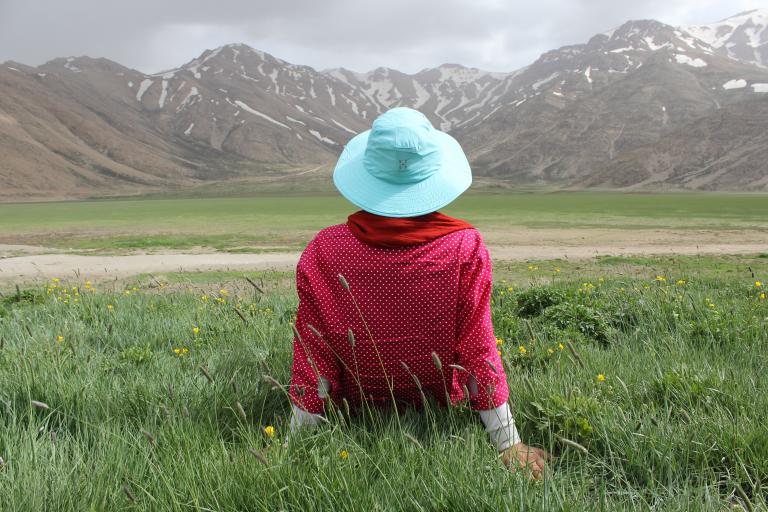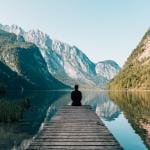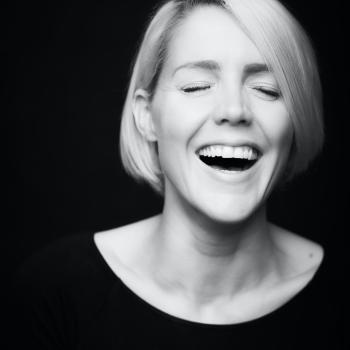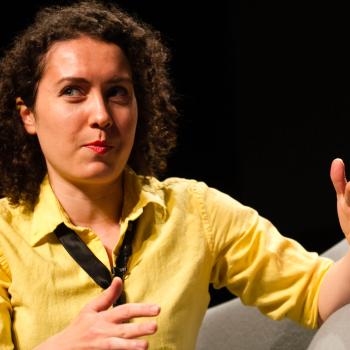
There are two kinds of New Year resolutions you can make. One is outward facing, pledging to be a better spouse or parent, boss or employee, or engaging in any behavior that makes the world around you a better place. (For instance, by being more kind.)
The other kind of resolution is inward facing. While for many of us this can mean a renewed commitment to exercise more and shed a few pounds, what I’m talking about here is an effort to address a part of yourself that can be often overlooked: your spiritual well-being, the “you” that exists at your very core.
Whichever way you choose to engage in spiritual practice, be it through prayer, meditation or spiritual reading, one thing’s for certain. You need quietude. Defined as a state of stillness, calmness and quiet in a person or place, it’s not something that happens by accident. We find quietude when we carve out the time and space in our busy schedules to take a temporary leave from our everyday world and…simply…be…still.
There was a time in the not too distant past when people devoted an entire day to quietude, spending hour-after-hour in reflection and solitude. This period is more commonly known as “the Sabbath day,” and as you’re probably aware, for Christians it is Sunday, for Jews it is Saturday, and for Muslims, Friday. In the book Silence, Simplicity, and Solitude, David A. Cooper says that:
In earlier days, the Sabbath was a time of reflection, inner work, and spiritual revitalization. All details of everyday life were excluded from conversation; all activities of business or future planning were unacceptable.
Yet for those of us who are not bound to a specific religious faith (and even for many who are), the idea behind the Sabbath has slipped away. Sunday becomes another day to do chores or run errands, to catch a football game or binge-watch your favorite television show. (I know, because I often fall into the same trap.)
One major problem is what passes for relaxation these days: it too often involves some sort of mental or physical engagement. This includes (but, of course, is not limited to) surfing the Internet or scrolling through social media on our computers or smart phones.
This creates a void in our lives. According to Cooper, what is “missing for most people in today’s world is the weekly period of solitude and reflection that was an integral part of life for thousands of years.” What was once a part of our way of living has been stripped away.
Maybe what we need is to build “pockets of stillness” in our lives.
The term “pockets of stillness” was coined by Maria Popova, who writes an email newsletter called Brain Pickings. She tells us that we need to find ways to escape from our everyday world and locate “places of respite from our everyday struggles.” She advises us to: “Meditate. Go for walks. Ride your bike going nowhere in particular.”
Popova also suggests that we use our downtime to daydream, stressing that “there is a creative purpose to daydreaming, even to boredom.” She believes that “the best ideas come to us when we stop actively trying to coax the muse into manifesting and let the fragments of experience float around our unconscious mind in order to click into new combinations.”
To do this, we need quietude. We need to ditch our digital devices. No checking messages or scanning social media is allowed. We need to separate ourselves from our everyday reality and retreat into a space that is calm and still. By avoiding external stimulation, we are better able to connect to this space.
Returning to David A. Cooper, while it appears to be counter-intuitive, the author tells us that spiritual solitude can better prepare us to engage with the outside world. To paraphrase the author:
When we engage in these moments of reflection and contemplation, we feel commonality and universality with all creation and we dwell in the timeless and spaceless realms, where the soul is at home and the heart is at peace. We develop the light within us and bring it into the world.
In other words, you come away from these moments of quietude, refreshed and recharged, better able to be the person you were meant to be. When you feel right inside, things seem to go better on the outside, as well.

















